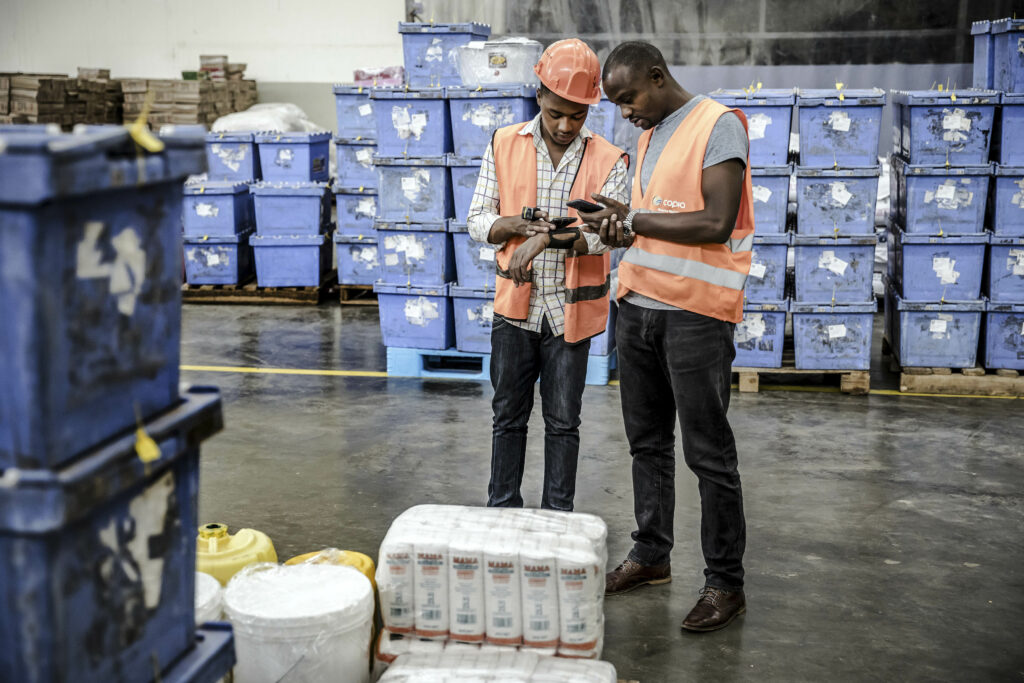Imagine the future: Entrepreneurs and small businesses rent shared office space in Cape Town. High-growth tech start-ups need a conducive policy environment to thrive. (Per-Anders Pettersson/Getty Images)
Our country’s greatest asset is its people — we have talented professionals and business people. But South Africa’s largest export is also its people — many of our greatest minds contribute their talents abroad rather than at home. Without a meaningful change in our policy landscape, South Africa’s fastest-growing businesses, and the entrepreneurs behind them, may follow them.
Much has been said recently about the potential for small businesses to contribute to economic growth and job creation. This is true, and they must be supported, but so too should tech-enabled, high-growth start-ups — businesses with the potential to grow exponentially and reach unicorn status (the term coined to describe an unlisted start-up with a $1-billion valuation).
Out of more than 900 unicorns in the world, nine are in Africa — six from Nigeria, one from Egypt, one from Senegal and one from South Africa, Go1.
A good segue is understanding that the traditional brick-and-mortar business needs a specific environment to thrive. This is created by accommodative policies that recognise the unique nature of these businesses. The treasury made important commitments to support these businesses in the last budget.
But there’s another type of business — the high-growth tech-enabled start-up. These differ from traditional brick-and-mortar businesses and need specific policies to catalyse their growth. Because each of these start-ups has the potential to create thousands of jobs (at scale), the need to create a supportive environment for these businesses is urgent.
What we are lacking is imagination. What if South Africa became a hub to develop unicorns? Other African countries such as Tunisia, Kenya, and Ghana are prioritising the participation of start-ups in their economies by introducing start-up Acts. Why shouldn’t South Africa? And why aren’t we leading this charge?
Endeavor South Africa has partnered with SiModisa, SAVCA, the Digital Collective Africa, Wesgro, i4Policy, Silicon Cape and other start-up players with a desire to see the tech start-up sector in the country thrive. We are working together, with the primary funding support coming from the World Bank, to encourage the government to create an enabling environment for entrepreneurs leading high-growth businesses.
The premise is built on enablement so that we trigger new, highly effective and powerful job-creation opportunities through effective policymaking.
Our suggestion is that innovation-driven tech start-ups with a turnover of less than R100-million be exempted from the limitations of existing policies and that the red tape constraining their growth and ability to create jobs be removed or relaxed.
What does this mean? It currently suits a South African tech start-up, with compelling and globally applicable intellectual property (IP), to leave South Africa to swim in the fertile global waters that have fed the world’s unicorns, rather than hacking through the red tape and costly legislation that limits potential unicorns in the country.
Those with great IP need to move this away from South Africa to make themselves more attractive to foreign investors. It is expensive to move IP offshore, given the burdensome capital gains tax, transfer pricing obligations and the additional cost to set up and run offshore. This necessitates a more sophisticated team, which comes at a substantially higher cost.
But most successful South African high-growth tech start-ups have been forced to take on this difficult and costly off-shoring task to drive their international revenue growth.
Foreign investors would rather invest in a country where the legislation is clear and supportive of the entrepreneurial value creation and where they are able to freely realise this value creation from their investments. In the real world, there is a push-back against South African investments — not because of quality but because of onerous regulatory burdens.
And so, we — along with the other start-up ecosystem stakeholders — advocate for several relaxations to legislation, including exchange controls and capital gains tax. Other relaxations include simplifying procurement policies with which to scale up the involvement of start-ups in the economy; direct funding of start-up businesses through the automatic reinvestment of PAYE and VAT; and the easing of labour and immigration laws to make hiring and movement of talent easier.
The premise behind a start-up Act is that the success of a start-up will ultimately benefit the country of origin. We will ask the government to improve the odds of our collective success to the benefit of the country. The start-up environment has evolved a long way from when the policies supporting small businesses were first developed. Is it not time for change?
On this point, the government has shown itself to be receptive to discussions and made a highly encouraging move in January when the South African Reserve Bank announced the revising of loop structures.
 Better policies needed: Workers track orders at a logistics and distribution hub in Kenya. Tech start-ups want regulatory hurdles removed so the sector can thrive in South Africa. (Luis Tato/Bloomberg/Getty Images)
Better policies needed: Workers track orders at a logistics and distribution hub in Kenya. Tech start-ups want regulatory hurdles removed so the sector can thrive in South Africa. (Luis Tato/Bloomberg/Getty Images)
A loop structure is when a South African resident holds a local asset indirectly through a non-resident entity. Before this, loop structures were only allowed in very limited circumstances, which counted against high-growth potential start-ups. We would like to see more of this progressive action.
Let’s not limit ourselves and the imaginations of talented South Africans. A start-up Act would set out to enable economic policy through an amendment or a standalone Act. This kind of Act is vital to allow our entrepreneurs to unleash their imagination and true potential so that they can trailblaze a path to success and on a global stage. It’s South Africa and its people that will benefit. What are we waiting for?